A 13-year WoW veteran formed his own studio to make an RPG that plays like "World PvP: The Game" and feels like a mini MMO channeling "early Blizzard"
Legacy: Steel & Sorcery can't fight its MMO blood, so it's embracing it
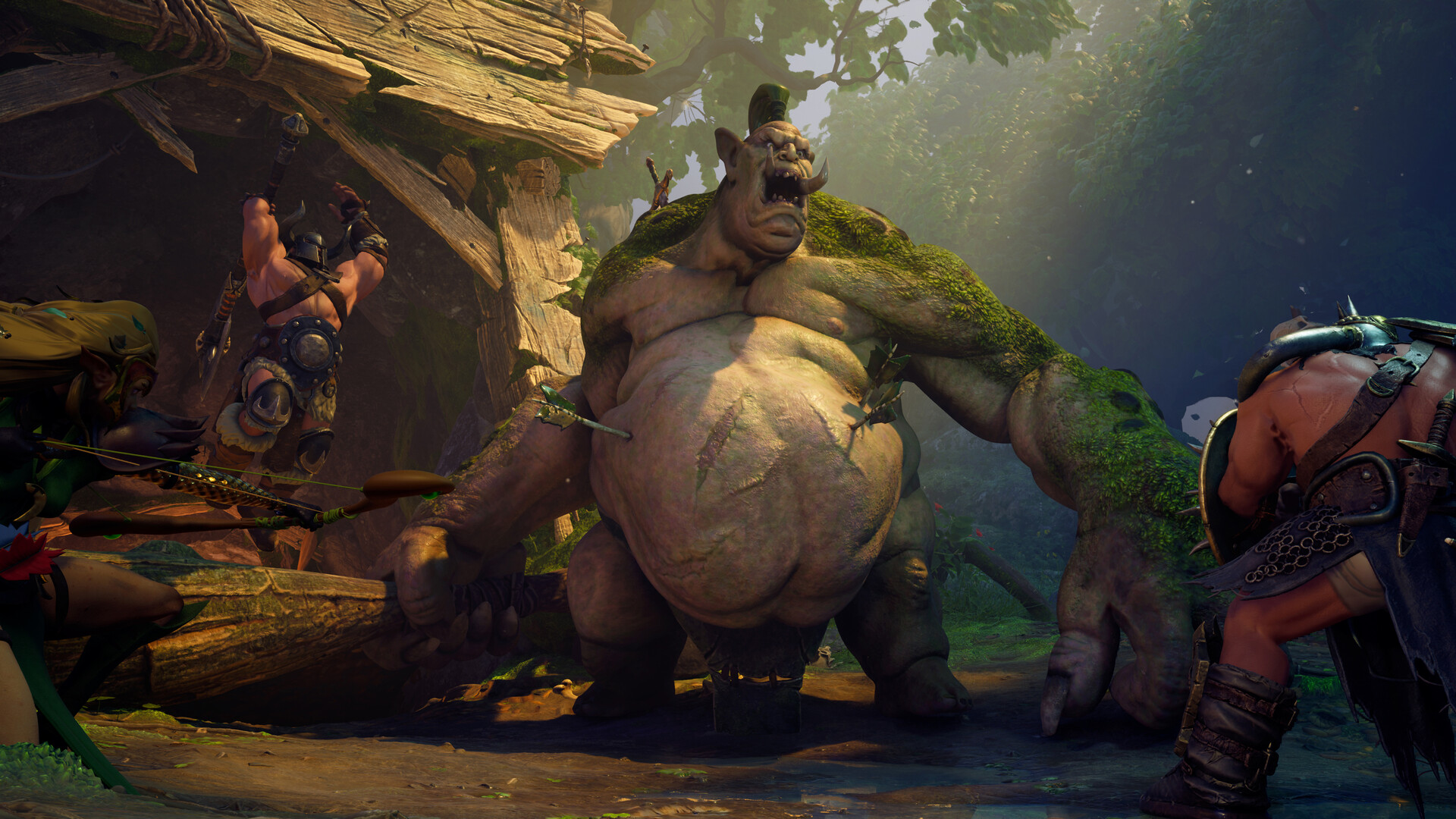
You may know Chris Kaleiki as a longtime class and systems design lead on World of Warcraft – 13 years being quite a long time indeed to spend with one MMO, or even one company – but he's now the boss of indie studio Notorious, named after the WoW guild that Kaleiki and many of his coworkers are part of. The studio is filled with WoW, AAA, and service game veterans, but its debut project is a deliberately smaller idea called Legacy: Steel & Sorcery, a PvPvE extraction-esque RPG with MMO stylings.
It's out in Steam early access on February 12 for $24.99, and in an interview with GamesRadar+, Kaleiki says the aim is to make a AA, not AAA, take on "World PvP: The Game," leaning into his favorite part of WoW and one of the most memorable elements of the Ultima games. Kaleiki is hoping to solve or avoid some of the design challenges he faced on World of Warcraft while leveraging the strengths of a smaller team working on a much smaller game and dialing up a hostile, engrossing world.
It all started with Ultima
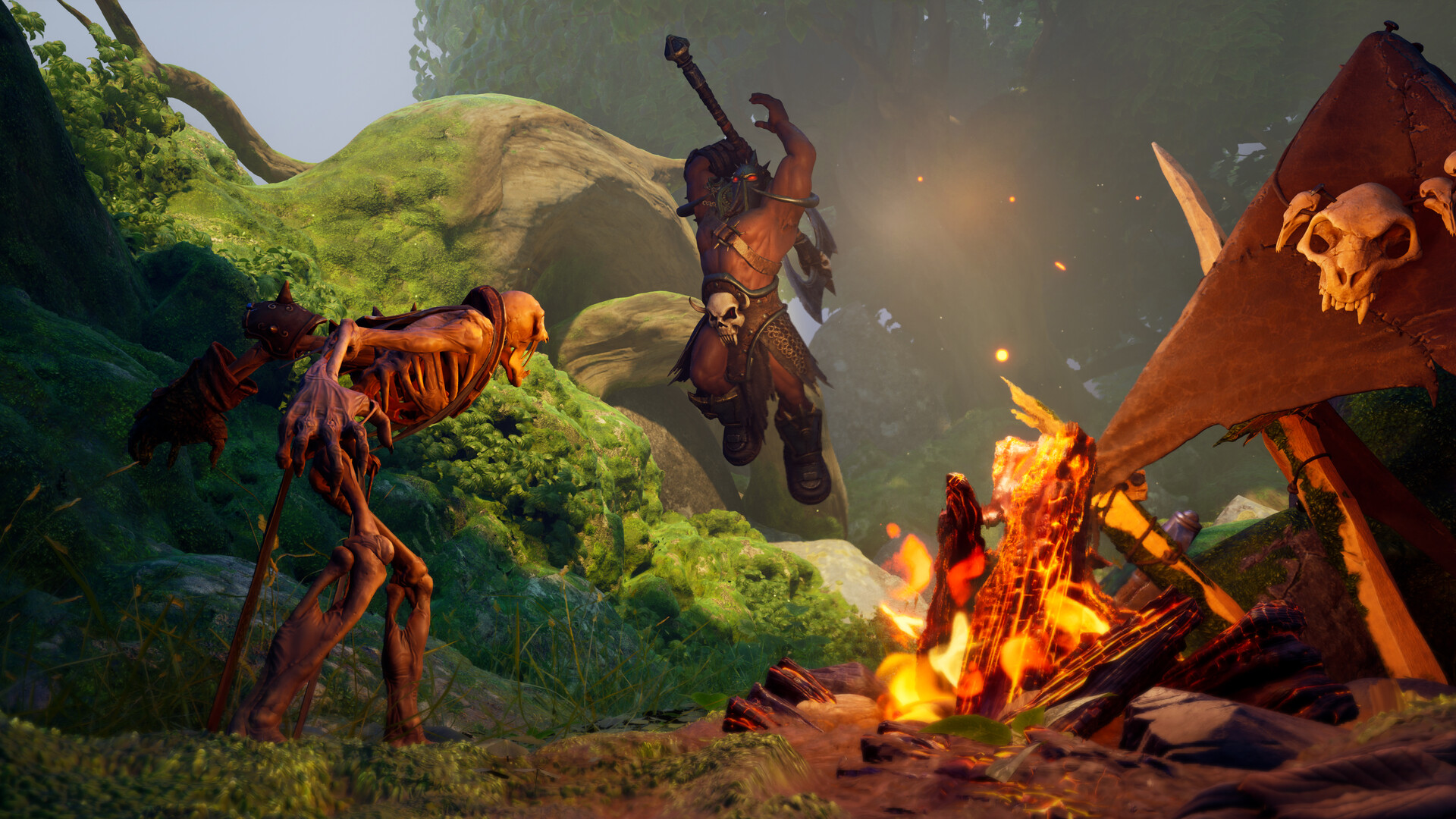
"I thought it would be compelling to create a world PvP RPG, and what's interesting is, when you look at what games resonate with players today or that are popular, they have a lot of elements of world PvP, right?" he begins. "If you think about [Escape from Tarkov], I think it's really a world PvP game. You go into the world, the objective really isn't to kill other players. It's to do quests, kill creatures, get loot, and then progress yourself. And PvP can happen, but since it's left to the player to decide, you create these interesting stories, player stories, and I think player stories and these sorts of things in games today are so important. I think players want to create their own experiences in games. They don't want to go from like, hey, the game designer says go here to here to here to here, follow that hallway. I think that kind of feels a little dated and old."
"That was the ultimate vision of the game, to be World PvP: The Game, essentially," he adds. "And that's why I think it's compelling. There is this underserved audience for a game mode that has been around for a long time, and was actually the predecessor to a lot of other popular games like Tarkov, or even battle royales I would consider world PvP in some ways, like PUBG, Fortnite, that sort of thing."
Behind – and also alongside – the PvP, Legacy is a fantasy PvE RPG where you build your character by collecting, crafting, and equipping items with unique skills attached. Your core perks are baseline passive bonuses that everyone can unlock just by reaching max level. The defining skills and synergies are in the items, and after years of making MMO builds and inevitably watching players flock to the go-to meta pick, Kaleiki fancies this a pretty innovative way to handle a talent system. "It's what we call the paper doll," he clarifies. "It's your helm, shoulder, chest, legs, that kind of thing. There's two rings and then your weapon." Those items, in essence, are your talent tree, which brings Monster Hunter to my mind in a good way.
In a game with DPS calculations, Kaleiki reckons choice is ultimately an illusion, but players can still meaningfully enjoy the variety of that illusion. Legacy's item system is meant to additionally create impactful conditional choices that affect how you play based on who you're playing with, what quest you're tackling, what area you're exploring, and how you like to play. "You may queue solo and have a certain build because you just want to avoid other players and get herbs and extract," Kaleiki suggests. "Or you may have a build as a priest that heals other people." It sounds like an interesting intersection of extraction loot economies and RPG customization, which underscores the genre soup at play here.
A mini MMO
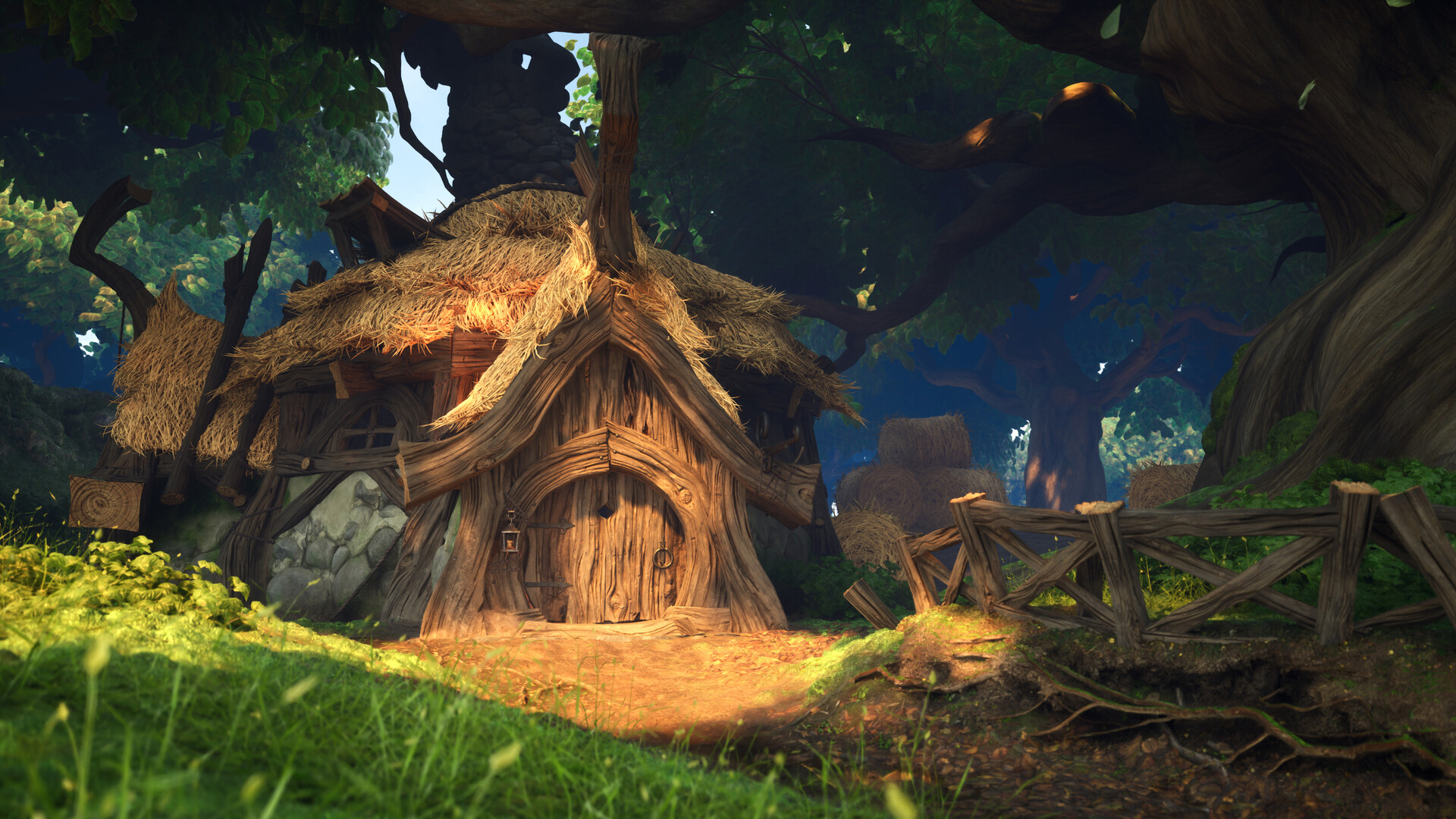
Kaleiki describes Legacy as a "mini MMO" channeling some of those "early Blizzard" philosophies, "which is really just about making games that we wanted to play and for a different audience, something smaller scale." He's quick to clarify that he wasn't unhappy at Blizzard, but is happier now since he gets to work on more parts of a game at once. Legacy ended up being a mix of things that worked well in WoW and some things that WoW couldn't really do.
Sign up to the GamesRadar+ Newsletter
Weekly digests, tales from the communities you love, and more
"For example, in our game you can vault up and climb areas, castles, hills, these sorts of things," he says. "That in itself really makes the world feel more tangible, more like a living thing, an extension of the player and combat and that sort of thing. There's destructible elements in the game, which really kind of came from playing Breath of the Wild. I even shared that with the WoW team at the time. Wow, there's so many things where the world feels more alive, I wish we could do this in the game. So there's that part too, where stuff we wish we could have done in WoW, we incorporate into the game."
It's a lot to wrap your head around, and even Kaleik admits he's still been trying to think of some way to effectively describe the game. "What players would probably call the game today in its current form is like an extraction RPG, which is actually a relatively new genre," he says. "And when I pitched the game originally, the investors, publishers hadn't even heard of kind of the primordial game in this genre, which is Tarkov. And so I was like, 'This is the game, this is how it works.' And even Tarkov, at the time, wasn't called extraction. It was just more of a military sim, but it had this extraction gameplay. But I think it's sort of a reduction to call [Legacy] an extraction RPG, although I'm fine calling it that for marketing purposes so players know some expectation, but the long-term vision is something more of what I would consider in a mini MMO."
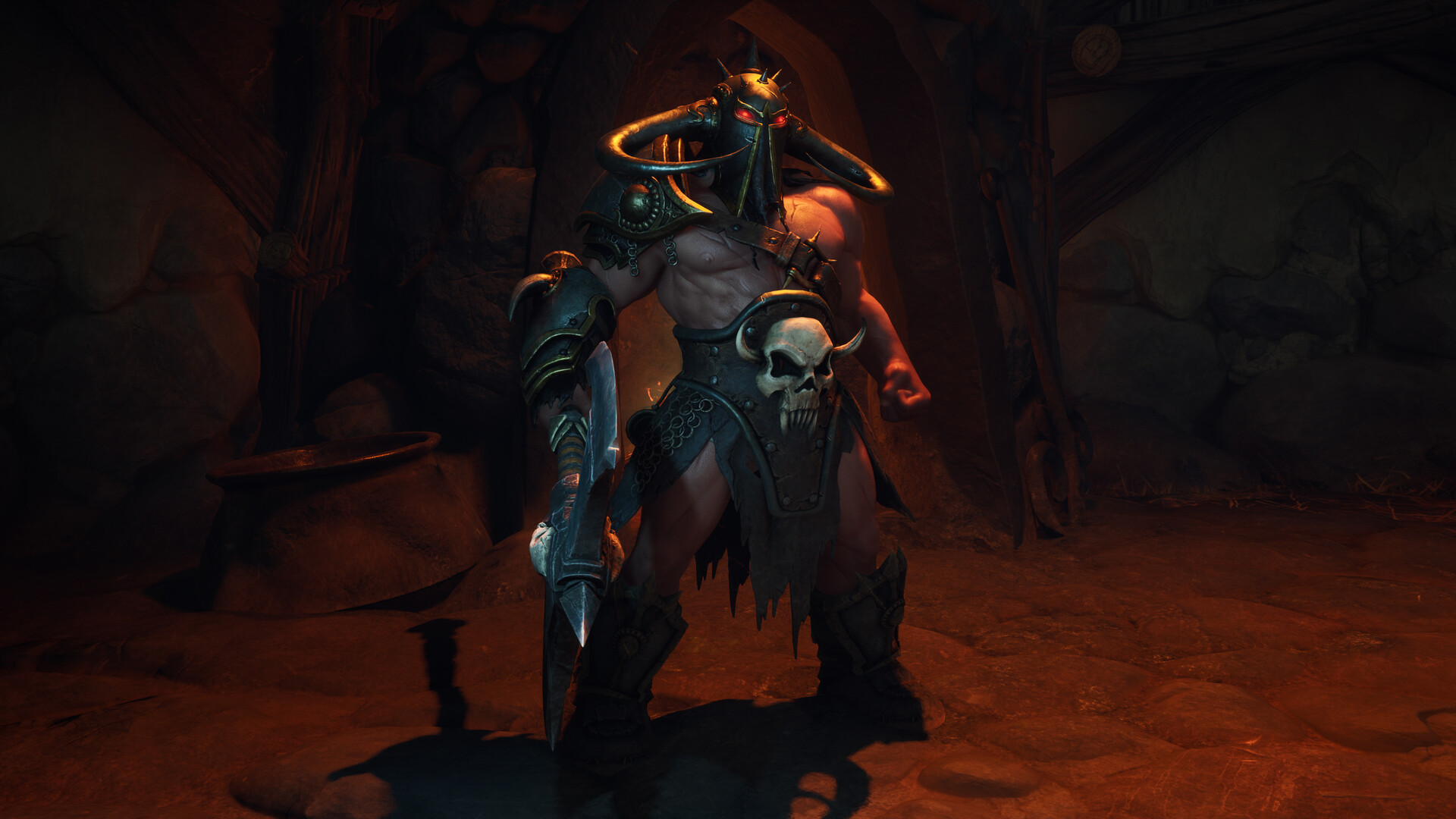
What makes a mini massively multiplayer online game? Kaleiki points to a few key details in Legacy. The world isn't perpetual like an MMO, for one. "Instances do spin up and spin down, and this isn't just because we think that's better," he explains. "It's mainly because it allows us to create a better, concentrated experience, and then also just so the instance isn't living forever and people are wandering around there. And then you have to deal with the server costs and these sort of things, because we are on a smaller studio budget. But the game does have a lot of traditional MMO features, which is crafting, which is leveling, which is RPG classes, these sorts of things. And in the future, we will have more social features as well as deeper character customization. Right now, you can't really change your hairstyle, your race, but we are going to add that in the future if the game does well."
He reiterates that "there's so many things that are very similar to an MMO, but I wouldn't call Legacy a traditional MMO, and I've been trying to not call it that because a lot of players know the heritage of the team at the studio and kind of assume we are making another MMO. But I think as the game matures and we add more features to it, it will become more of an MMO than not."
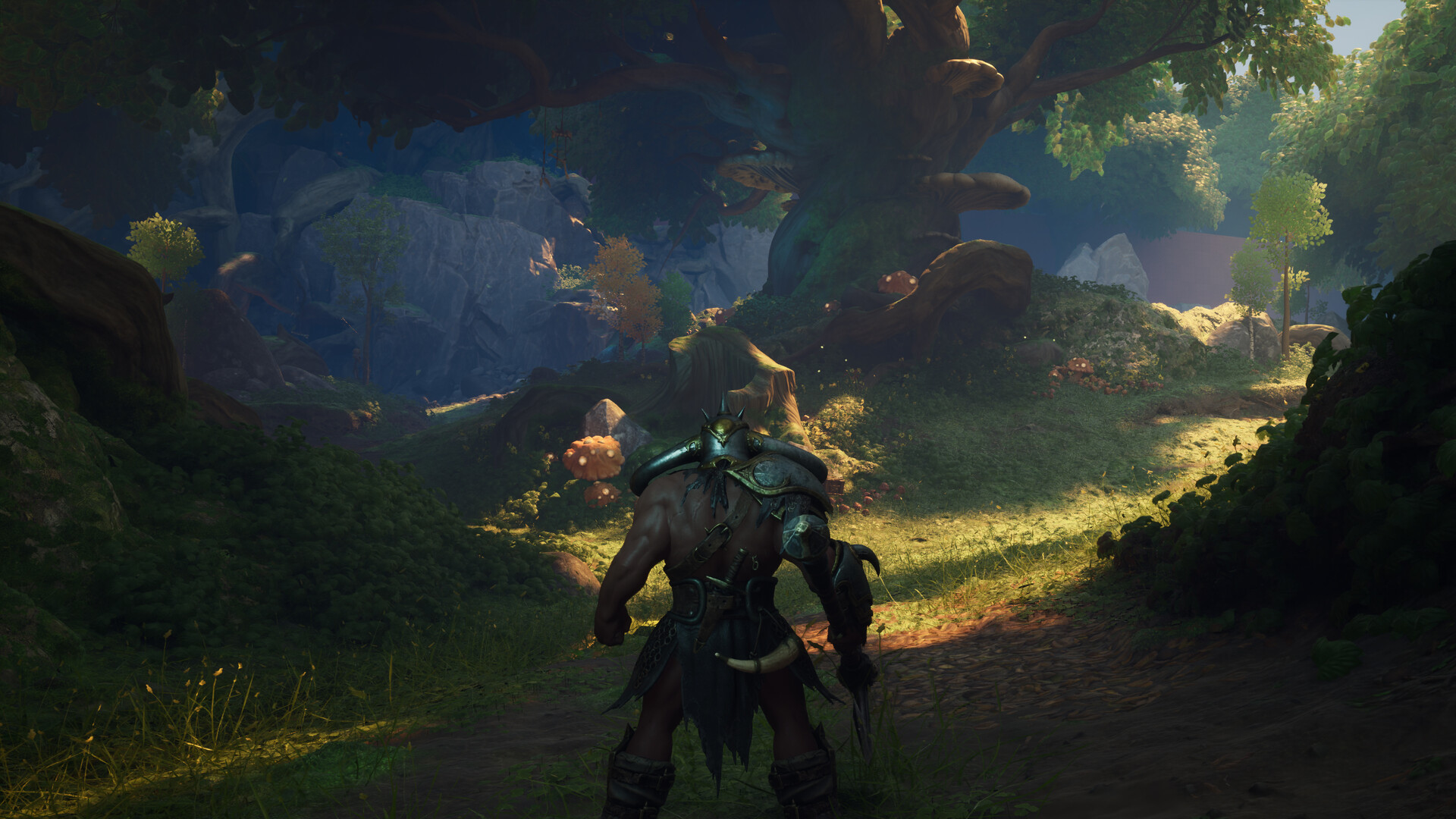
How mini is mini? Legacy is currently targeting roughly 24-player instances as Notorious looks to find a balance that makes PvP encounters exciting but not exhausting. This cap may change over time based on new maps and player feedback. For now, the focus is on the February 12 early access launch, which will build on several pre-release tests. It's an especially important time for a small studio looking to get into PvP, a notoriously competitive space that can turn up hits or spit out flops.
Kaleiki is up-front about the risks, optimistic about how "sticky" PvP players can be when they really connect with a game, and also cognizant of the fact that Legacy doesn't have to be an industry-dominating mega-hit to do well. In fact, while any success is great, the Notorious team is kind of hoping for a modest start in early access that they can gradually build on and learn from.
"Another thing I learned at Blizzard is just that involving the player in the game development process is so critical and important, kind of a secret of their success," Kaleiki says. "And it's a lot of it that you never saw. It was a lot of communicating to players, at the time on Ventrilo or email and these sorts of things, and getting their feedback, iterating from that, learning from them. Many of the developers at Blizzard played the games a lot and loved them, but even then, you don't know everything. Talking to the players, learning from them, is super important."
Big in 2025: The 50 most anticipated upcoming video games of the year.

Austin has been a game journalist for 12 years, having freelanced for the likes of PC Gamer, Eurogamer, IGN, Sports Illustrated, and more while finishing his journalism degree. He's been with GamesRadar+ since 2019. They've yet to realize his position is a cover for his career-spanning Destiny column, and he's kept the ruse going with a lot of news and the occasional feature, all while playing as many roguelikes as possible.



